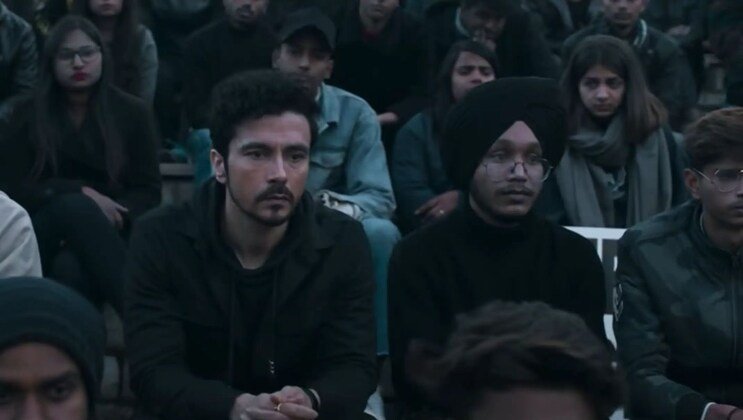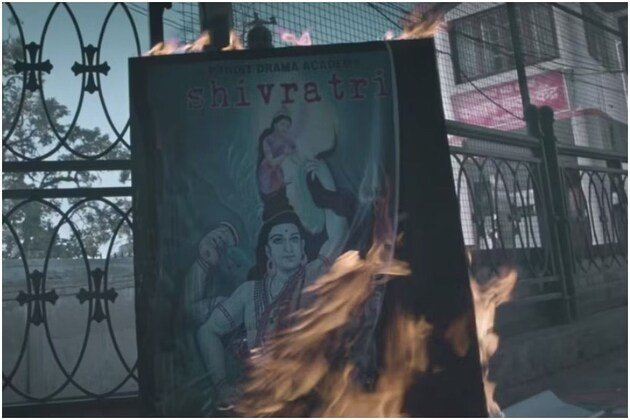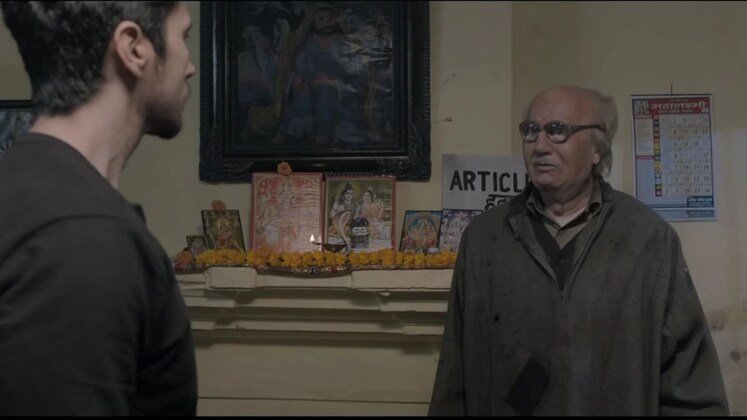The Kashmir Files Story :-
Based on real events, the emotionally charged film sheds light on the harrowing experiences of Kashmiri Pandits, a Hindu minority in the Kashmir valley during the 1990s. Driven from their homes by Islamic militants, they became refugees in their own country, enduring displacement and seeking justice amidst political complexities.
Movie Ratings
| Release Date | 11 March 2022 |
| Language | Hindi |
| Genre | Drama, History, Thriller |
| Duration | 2h 50min |
| Cast | Mithun Chakraborty, Anupam Kher, Darshan Kumaar, Pallavi Joshi, Chinmay Mandlekar, Prakash Belawadi, Puneet Issar, Bhasha Sumbli, Sourav Verma, Mrinal Kulkarni, Atul Srivastava, Amaan Iqbal |
| Director | Vivek Agnihotri |
| Writer | Vivek Agnihotri, Saurabh M. Pandey |
| Cinematography | Udaysingh Mohite |
| Music | Rohit Sharma |
| Producer | Abhishek Agarwal, Tej Narayan Agarwal, Vivek Agnihotri, Pallavi Joshi |
| Production | Abhishek Agarwal Arts |
| Certificate | 18+ |
“The Kashmir Files” bravely confronts the forgotten tragedy of the Kashmiri Pandits, presenting their untold story through the lens of survivors’ testimonials. The film argues vehemently that what occurred wasn’t merely an exodus, but a brutal genocide perpetuated by Islamic militants, conveniently ignored for political expediency. After nearly three decades in exile, Kashmiri Pandits continue to yearn for acknowledgment and justice, their homes and livelihoods usurped by locals, underscoring the urgency of their plight.
Amidst ideological divisions and communal strife, the stifling of voices emerges as a recurring nightmare. Kashmir, once a vibrant and diverse region, has been besieged by humanitarian crises, terrorism, and separatist movements, its wounds festering beneath the veneer of political rhetoric. “The Kashmir Files” fearlessly exposes these wounds, delving deep into the heart of the tragedy.
Vivek Agnihotri’s visceral and unflinching portrayal revisits the horrors of the exodus and its aftermath, depicting the atrocities inflicted upon Kashmiri Pandits due to their faith. Drawing from documented accounts, the film recounts chilling incidents, from the murder of telecom engineer BK Ganjoo to the Nadimarg massacre, bringing to life the stark realities faced by the community. Anchored by Anupam Kher’s poignant portrayal of nationalist Pushkar Nath Pandit, the narrative unfolds through the eyes of his grandson Krishna, grappling with his family’s painful history.
While reopening old wounds may not offer immediate solutions, “The Kashmir Files” insists on confronting the trauma as a necessary step towards healing. Agnihotri’s unflinching approach ensures an intense viewing experience, though the film’s convoluted narrative occasionally obscures character depth and psychological insights. Amidst a barrage of themes, including political machinations, media biases, and historical context, the emotional core of Pushkar Nath Pandit’s story resonates, albeit amidst a cluttered backdrop.
Anupam Kher delivers a gut-wrenching performance, capturing the anguish of a man longing for his homeland, while Pallavi Joshi impresses with her portrayal. Chinmay Mandlekar and Mithun Chakraborty offer competent performances in their respective roles, though the narrative’s focus sometimes wavers amidst the chaos.
In contrast to previous films like Vidhu Vinod Chopra’s “Shikara,” which offered glimpses of Kashmiri Pandits’ culture and despair, “The Kashmir Files” confronts the political and militant dimensions head-on. While the film may lack narrative coherence at times, its unflinching portrayal of the Kashmiri Pandits’ trauma demands attention, reminding viewers of the enduring pain of displacement and the quest for justice.





